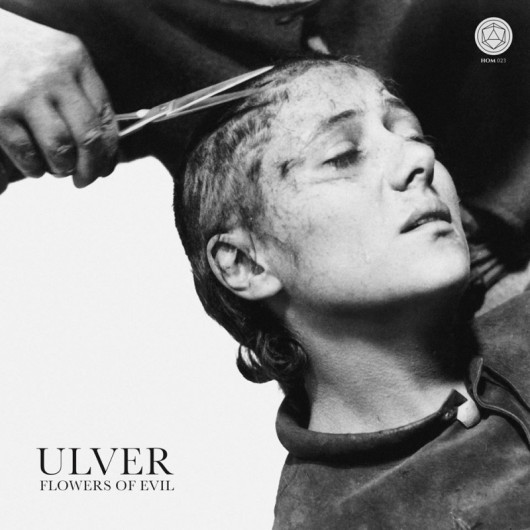ULVER - Flowers of Evil
Nové album norských experimentátorů.
In the midst of the forest, the floor is littered with monstrous heads and mythical figures, frozen in torturous combat or threatened by wild beasts. A dragon fights a dog and a wolf. A lion sinks its teeth into the fire-breathing monster’s chest.
This sacred grove, near Bomarzo in Lazio, Italy, reveals the nightmare vision of Vicino Orsini, a sixteenth century nobleman. It’s a forest of symbols, suggesting a civilisation overrun by the beasts, demons and monsters of the primordial world. Soon after Orsini’s death, trees began to close in on these many peculiar beings, and green moss would eventually seize them. Slowly, nature finished what he had started.
Flowers of Evil, the new studio album from Ulver, finds the wolf pack exploring the fear and wonder of mankind’s fall from redemption. Visions similar to those of Orsini come to mind, as untamed life abounds:
THEY SPREAD
TWIST AND TURN
IN THE KILLING FIELDS
The threads of haunted places and images entwine. Have Ulver discovered new pastures under the sun? Or scoured the ruins of their own moonlit past? The truth is, they’re closer to their previous purlieu than perhaps ever before.
“Doom dance”, someone dubbed their last studio album, the critically acclaimed, Impala Award-winning The Assassination of Julius Caesar (2017). Flowers of Evil comes across as an unfeigned progression along the course set by that album, revealing a band moving deeper into beats and grooves, hooks and choruses, synths and guitars, yet sounding more stripped back, making room for the distinctive detail. Once again Michael Rendall (The Orb) and legendary producer Martin “Youth” Glover have taken crystalline care of the mix.
As Caesar demonstrated, Ulver haven’t abandoned any of their obsessions, worries or nightmares as they enter the gilded palace of pop. “One last dance / in this burning church”, Kristoffer Rygg announces on the album’s opening track, featuring old friend Christian Fennesz on guitar and electronics. It sees them locked inside their Hall of Mirrors. A slow build brings the music to the album’s pulsing theme:
WE ARE WOLVES
UNDER THE MOON
THIS IS OUR SONG
WE HAVE LOVED
AND WE HAVE LOST
WE ARE READY TO GO
With Flowers of Evil Ulver have fled a burning Rome, only to confront further crime and corruption. ‘Russian Doll’, the album’s first single, moves determinedly through the night, with a story of unfolding tragedy and misery. ‘Machine Guns and Peacock Feathers’ brings fiery end-time imagery – “barrels are burning / great art will be destroyed” – with a disco beat and flashy ’80s synths. Dismal cries resound on ‘Hour of the Wolf’; echoing Bergman’s classic film, the song is dedicated to the hour between night and dawn, “when most people die, when sleep is deepest, when nightmares are most real”. ‘Apocalypse 1993’ reveals Ulver at their catchiest, its bounding-goat groove running hand in hand with a grand chorus depicting the catastrophic events at Waco, Texas, during the winter of that year – the very same winter that saw the birth of Ulver’s first incarnation. From that thorny undergrowth, this is what they have become: an eclectic, many-headed beast, chanting the ecstasies of the spirit and the senses.
Flowers of Evil unfolds with the shattering second single, ‘Little Boy’. A mysterious beat moves the track towards its thunderous climax, and here Michael J. York’s ominous pipes melt into the softer, moodier ‘Nostalgia’, a ’70s soul shuffle, and the heart-breaking Talk Talk-esque balladry of ‘A Thousand Cuts’. Finally, the wolves are back in the palace of excess, waltzing the night away. Yet around them, the wilderness rises, triumphant; “grass will grow over your cities”, as the Bible says.
Tracklist:
1. One Last Dance
2. Russian Doll
3. Machine Guns and Peacock Feathers
4. Hour of the Wolf
5. Apocalypse 1993
6. Little Boy
7. Nostalgia
8. A Thousand Cuts
